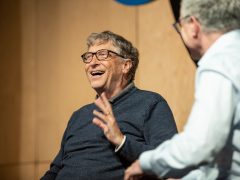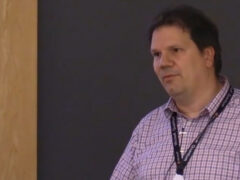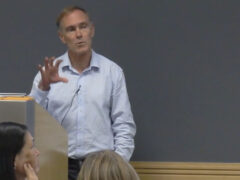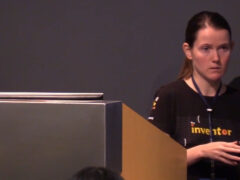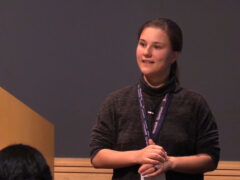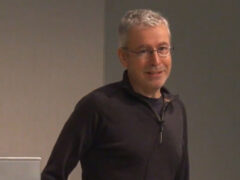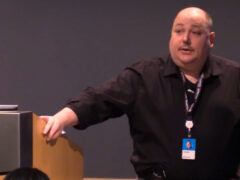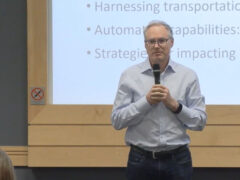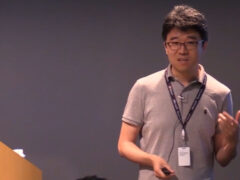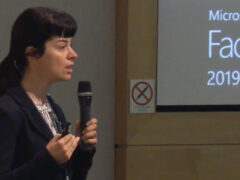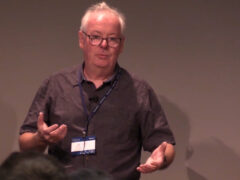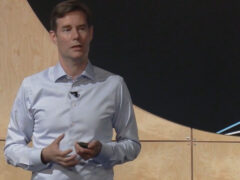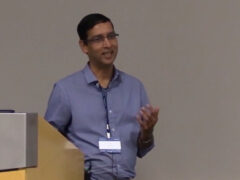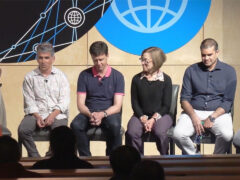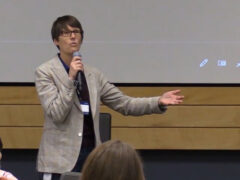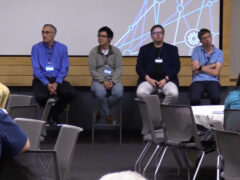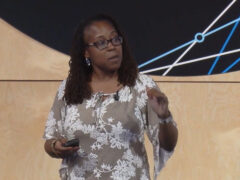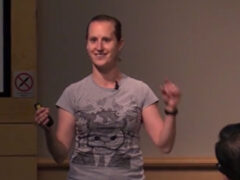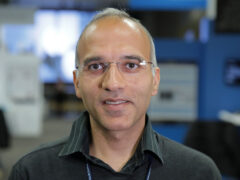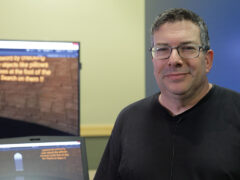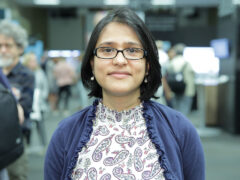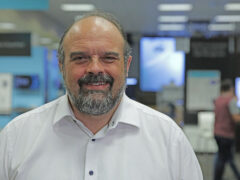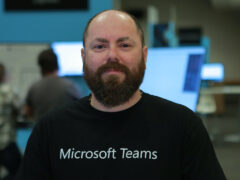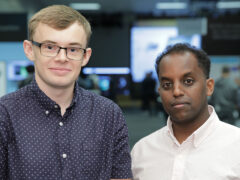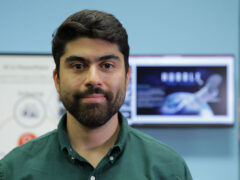Keynote: A Revolution Against Big-Brother Social Networks
- Monica Lam | Stanford University
With the widespread adoption of proprietary social networks like Facebook and mobile chat platforms like Wechat, we may be heading to a future where all our communication are monetized and our online transactions are mediated by closed monopolistic big-data companies.
This talk describes an open social movement led by Omlet, an open messaging service and distributed computing platform that spun out of four years of research at Stanford University. To the user, Omlet appears as a super chat app with many plug-ins and extensions; deep down, Omlet is actually a distributed social OS and network. At the heart of Omlet is a universal messaging system where devices can communicate with each other via existing identities such as phone numbers or email addresses, without giving up ownership of the communication data. Built upon this messaging layer is a distributed semantic file system that enables collaborative apps be written easily while allowing data be distributed in the cloud service of the users’ choice.
Speaker Details
Dr. Monica Lam has been a Professor of Computer Science at Stanford University since 1988. She received a BSc from University of British Columbia in 1980 and a PhD in Computer Science from Carnegie Mellon University in 1987. She is the Faculty Director of the Stanford MobiSocial Computing Laboratory. Her current research interests are in building an open and federated social computing infrastructure. She has worked in the areas of architecture, compiler optimization, software analysis to improve security, mobile and social computing. Lam is an ACM Fellow, received an NSF Young Investigator award in 1992, and has won a range of best paper awards from the ACM. She is a co-author of the “dragon book”, the most popular textbook in compilers. She is also the founding CEO of Omlet, a Stanford spinoff to create an open social platform.
-
-
Jeff Running
-
-
Series: Microsoft Research Faculty Summit
-
-
-
Cars, Computing and the Future of Work: Specific topics of mutual interest
- Linda Boyle,
- Ed Doran,
- John Lee
-
-
-
Crowd, Cloud and the Future of Work: Updates from human AI computation
- Pietro Michelucci,
- Lucy Fortson,
- Franco Pestilli
-
-
Cars, Computing and the Future of Work: A UW & MSR Workshop: Welcome and Overview of Projects
- Linda Boyle,
- Ed Doran,
- Eric Horvitz
-
-
Crowd, Cloud and the Future of Work: Welcome and Updates
- Besmira Nushi,
- Ece Kamar,
- Kori Inkpen
-
Empowering People to Achieve More: How Useful a Concept is Productivity?
- Brendan Murphy,
- Yvonne Rogers,
- Steve Whittaker
-
Keynote - The Future of Work And the Power of Data
- Johannes Gehrke
-
Productivity in Software Development
- Neel Sundaresan,
- Margaret-Anne Storey,
- Prem Kumar Devanbu
-
Artificial Emotional Intelligence, Social Systems, and the Future of Collaboration
- Mary Czerwinski,
- Mark Ackerman,
- Gloria Mark
-
Workers of the World, Connect! Tech Innovations and Organizational Change for the Future of Work(ers)
- Mary Gray,
- Jamie Woodcock,
- Louise Hickman
-
Increasing AI Programmer Productivity
- Markus Weimer,
- Sarah Bird,
- Ce Zhang
-
Human-AI Collaboration for Decision-Making
- Besmira Nushi,
- Ayanna Howard,
- Jon Kleinberg
-
Future of Spreadsheeting
- Ben Zorn,
- Felienne Hermans,
- Daniel Barowy
-
Program Synthesis meets Notebooks
- Sumit Gulwani
-
Accessible Virtual Reality
- Eyal Ofek
-
Calendar.help: A Virtual Meeting Scheduling Assistant
- Pamela Bhattacharya
-
Visual Studio IntelliCode
- Mark Wilson-Thomas
-
Microsoft Teams: Collaborate with Any Researcher Anywhere
- Jethro Seghers
-
Project Alava: Programming Webs of Microcontrollers
- James Devine,
- Teddy Seyed
-
AI in PowerPoint
- Kostas Seleskerov

